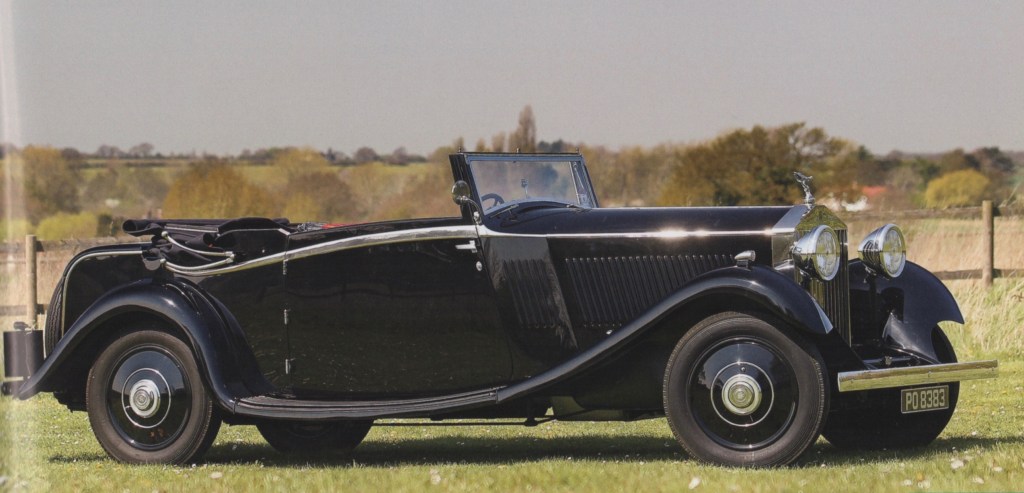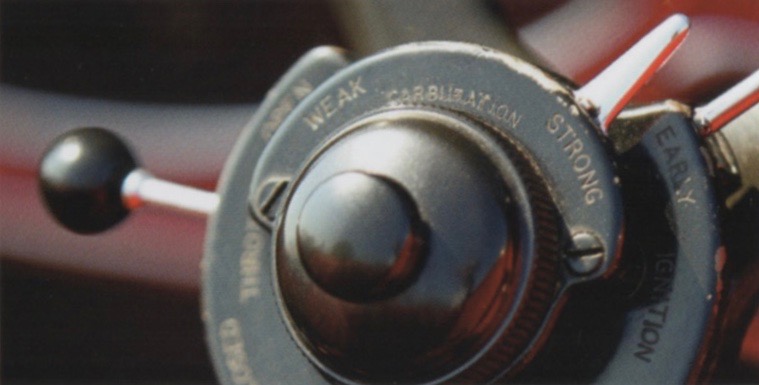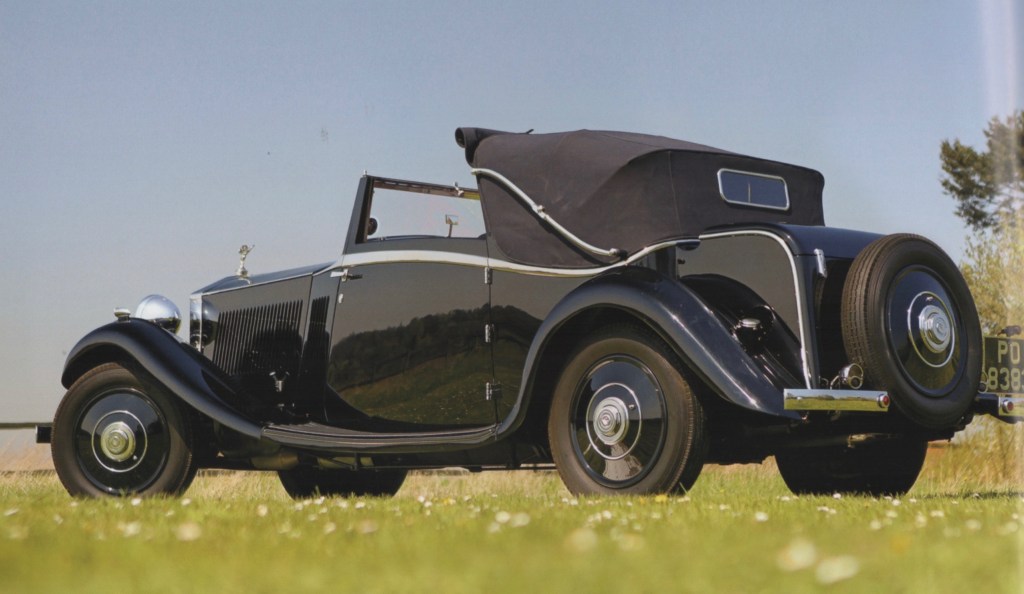Simanaitis Says
On cars, old, new and future; science & technology; vintage airplanes, computer flight simulation of them; Sherlockiana; our English language; travel; and other stuff
SEPARATED AT (COACHWORK) BIRTH?? AT LEAST IN SPIRIT
WHAT DID MY 1958 English Ford Consul Mk II convertible have in common with the 1933 Barker-bodied Rolls-Royce 20/25 Three-Position Drophead Coupe?
“Utterly nothing,” one is tempted to respond.
However, the term “Three-Position” prompts a non-snarky response. Here are tidbits on these two English cars.
The Rolls-Royce’s Three Positions. This particular Rolls-Royce Three-Position Drophead Coupe was offered at Gooding & Company’s 2013 Pebble Beach auction. In its catalog, Gooding notes that “a glowing 1931 review by Autocar pronounced the model to be ‘on a plane altogether superior to the normal style of motor car.’ ”

Gooding says, “The sensational coachwork, which is believed to be one-off, debuted at Barker’s stand at the Paris Salon on October 5, 1933, and remained on display for the following 10 days.” The car’s Three-Position Drophead recalled an earlier era when chauffeurs drove with less than full weather protection.

Other Styling Particulars. Gooding observes, “The very slim windscreen pillars, leather-covered dashboard, and alloy cappings to the dashboard and doors are particularly notable.”

Notable too are the steering-wheel controls for adjusting ignition, fuel mixture, and throttle. The throttle is labeled conventionally: “Closed” and “Open. In Rolls-Royce tradition, the ignition lever is calibrated “Early” and “Late.” The mixture lever, “Weak” and “Strong.”

I enjoy the Gallic flair of bodywork and chrome trim echoing the sweep of the top’s landau bars, regardless of hood orientation. Note too the pencil-thin continuations of chrome along the car’s bonnet (our “hood”) and boot (our “trunk”).

As the Gooding catalog notes, “This exceptionally beautiful 20/25 is as fine an example of the model as any to be found.” Especially being a Three-Position Drophead.
Ford Consul’s Three Positions. My first car was a 1958 English Ford Consul Mk II convertible. My dad, a steel worker, was initially reluctant to buy his kid a foreign car, even though he had bought me my first R&T in 1954.

Being a Ford was important for my dad. And the car’s resemblance to a scaled-down 1955 Ford convertible (our family car at the time) didn’t hurt.
Not utterly unlike the Rolls-Royce, the Consul convertible has an interesting coachwork story: Ford had it bodied at Carbodies of Coventry, builders of the icon London Black taxicabs.

The Consul’s three-position top may not have been as elegant as the Barker Rolls-Royce’s, but it achieved the same purpose. The forward portion rolled aft to create the world’s largest sunroof. To this day, I am enamored of cars with sunroofs.

My Consul had a three-speed manual, “three on the tree” column shift, with non-syncho low. Good training for learning double-clutch downshifting.

Michael Redgrave is one of the stars in this charming flick from the early 1960s. Juliet Mills is another (her younger sister Hayley is perhaps better known). And to me, the car is a star too. ds
© Dennis Simanaitis, SimanaitisSays.com, 2020

I had a 1955 Volkswagen with “4 on the floor”, also with non-synchro low gear. I found that no matter how much double-clutching I tried, I could never shift into low gear while the car was moving without a loud,painful clashing of gears. Were you successful with your Consul? And if so, what was your secret?
Hi, Bob,
Yes, I was successful, in time. Succinctly, the secret is lots of (gently) clashed gears until practice meets theory.
Once perfected, it works on any cars: Morgan’s Moss gearbox bottom gear, race car crash boxes, vintage cars.
The problem is explaining the process, which reads like typing instructions that say “think of the letter you want, find it among those little buttons, then press that button.”
From 2nd to bottom: clutch in, lever to neutral, clutch out; blip throttle to rpm expected in 1st; clutch in, lever to first, clutch out.
RE : crash boxes and non synchro first gears :
I’m pretty sure Mr. Simanaitis is older than I but most of us who learned to drive in the early 1960’s learned on older vehicles with full crash boxes, I remember watching closely as an infant, I couldn’t wait to try this driving thing .
As VW said in 1962 ‘pretty soon it becomes automatic” .
-Nate